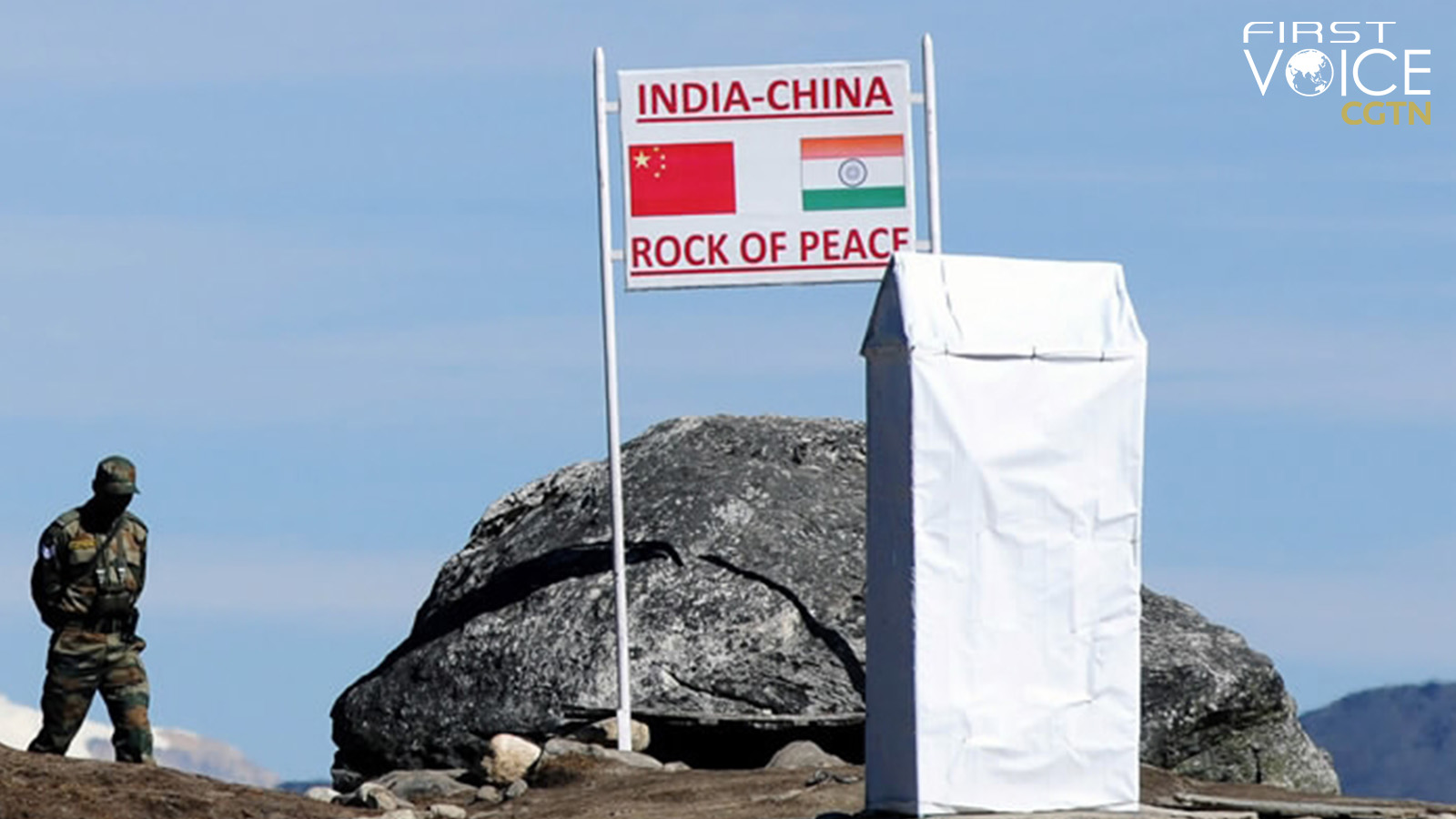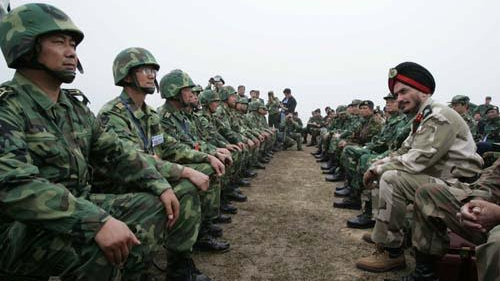
Editor's note: CGTN's First Voice provides instant commentary on breaking stories. The daily column clarifies emerging issues and better defines the news agenda, offering a Chinese perspective on the latest global events.
India is engaging in a dangerous game by playing up the China threat instead of looking for ways that the two sides can resolve their disputes along their mountainous border. On November 11, Defense Chief General Bipin Rawat said in a public forum that there is no doubt that China is India's "enemy number one." He said that a lack of "trust" and growing "suspicion" is standing in the way of resolving the border dispute.
Right now, the Indian military is undergoing its biggest shake-up since the country achieved independence. The Modi administration is trying to integrate the army, air force and navy, modernizing its military to work like the modern forces in the U.S. and China. It's a delicate time for Indian military, and conjuring up a new threat is a good way to firm up political support, defend bureaucratic turf amid big changes, and increase military budgets.
Trying to arouse domestic support by pointing to an external threat is a tried and true tactic of populist politicians. This strategy works in the short term, but risks creating self-fulfilling prophesies that lead to unnecessary conflict in the bigger picture.
Mixing domestic political objectives with international relations is always a bad idea. Narrow domestic concerns tend to overshadow international problems that could be solved by highly technical negotiations by experts on both sides. Both India and China have important and sensitive national interests in the border dispute. The two nations have already had conflict once over the territorial claims. And last July, India said it lost 20 soldiers during a border-clash with China.
The idea of China being a threat is deeply wired into the psyche of India security officials. In fact, this fixed idea may be a big part of the source of the lack of trust and suspicion. Even with positive developments toward de-escalation like Rawat noted, China always remains "the enemy." This has very negative implications for the stability of the region.

The talks led by China's Southern Xinjiang Military District chief and India's 14 Corps commander were held in the border area on the Chinese side on Saturday. /Representational photo via Xinhua
The talks led by China's Southern Xinjiang Military District chief and India's 14 Corps commander were held in the border area on the Chinese side on Saturday. /Representational photo via Xinhua
China and India in fact have a lot of common ground. Both are very large developing countries that suffered at the hands of colonialists. Both are trying to balance development to benefit their populations with the threat of global warming. This year, trade between the two nations surpassed $100 billion in October, a 22 percent increase from the same period last year. There is a huge scope for potential cooperation in areas such as pharmaceutical products, raw commodities, machinery and medical supplies.
It is important that this big, multidimensional picture not be forgotten because of a border dispute. India, in part motivated by the border dispute with China, has joined the "Quad," a security grouping with the United States, Japan and Australia with its eyes set on checking China's growth.
India needs to consider whether its interests could really be materialized by pursuing an aggressive military stance against China. Although the two countries have border dispute, there is no need to expand the dispute beyond that, and make China "enemy number one" and hyping up the threat it poses. After all, China presents no danger to the Indian people, and trade with China offers them great benefits.
India will be more secure all around if it focuses on its own development, continues along the path of robust trade with China, and stops branding China as a threat. It is a dangerous game especially when the country is going with domestic military restructuring, and it wouldn't benefit India in the long-run.
(If you want to contribute and have specific expertise, please contact us at opinions@cgtn.com.)

